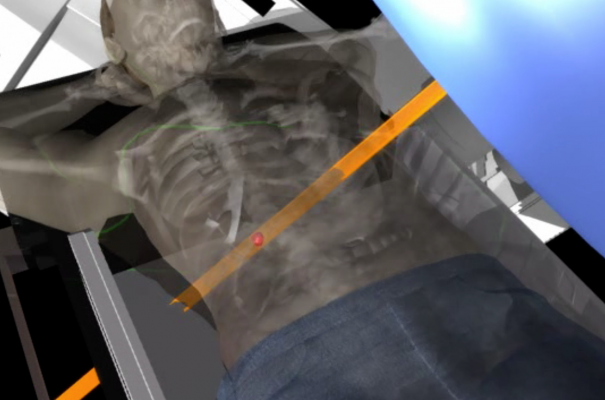
July 5, 2017 — A new study from Roswell Park Cancer Institute reporting the findings of the first clinical trial to evaluate the immune effects of high-dose radiation therapy followed by surgery in patients with advanced kidney cancer may also set the stage for combination treatments with immunotherapy. The research, published in Clinical Cancer Research, a journal of the American Association for Cancer Research (AACR), shows that nephrectomy can be effectively paired with stereotactic body radiation therapy (SBRT), and also provides strong evidence that immunotherapy may be an effective third element to incorporate into this combination therapy strategy.
In a pilot clinical study, 14 patients with metastatic renal cell carcinoma (mRCC) were treated with SBRT in a single administration (fraction) followed four weeks later by cytoreductive nephrectomy, or surgery to remove or reduce the size of their tumors. The team set out to assess the safety and feasibility of this approach and analyze the immunological impact of high-dose radiation. Based on their preliminary studies in the lab, the team monitored patients’ tumors for expression of immunomodulatory molecules and tumor-associated antigens.
“We saw a significant increase in calreticulin and other molecules that stimulate T cells,” said the paper’s first author, Anurag Singh, M.D., professor of oncology and director of radiation research with the Department of Radiation Medicine at Roswell Park. “This suggests that it may be possible to improve the effectiveness of immunotherapies by first priming the pump with high-dose radiation.”
The authors include a contributor from the Department of Radiation Oncology at the Medical University of South Carolina.
Findings from this research will also be presented at the American Society for Radiation Oncology (ASTRO) Annual Meeting, Sept. 24-27 in San Diego, where Singh will receive a Basic/Translational Science Abstract Award for his role in this work.
The research was supported by grants from the National Center for Advancing Translational Sciences (project no. UL1TR001412), National Cancer Institute (project nos. P30CA016056 and R01CA140622), the Sklarow Foundation, Elsa Kreiner Memorial Fund, Fraternal Order of Eagles and RPCI Friends of Urology.
For more information: www.clincancerres.aacrjournals.org


 February 04, 2026
February 04, 2026 









